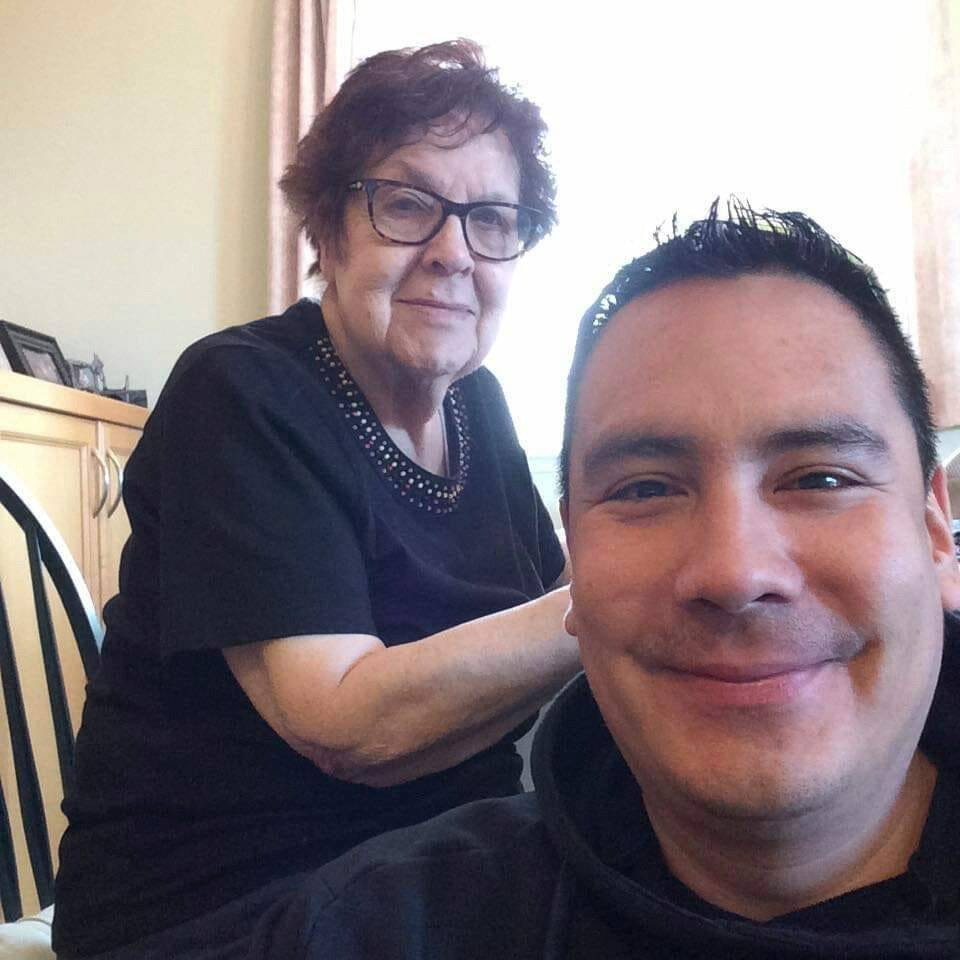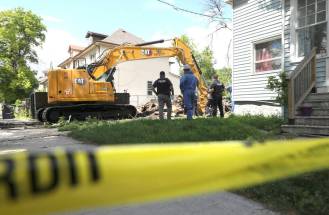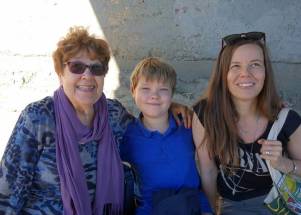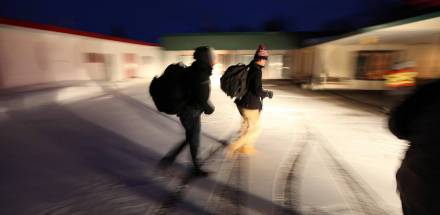Daughter fears ‘nightmare scenario’ for elderly, isolated parent amid COVID health chaos Province moved 80 year old with broken leg 350 km away from family, friends in January; weeks after son’s death, no one knows when she’ll be home
Read this article for free:
or
Already have an account? Log in here »
To continue reading, please subscribe:
Monthly Digital Subscription
$0 for the first 4 weeks*
- Enjoy unlimited reading on winnipegfreepress.com
- Read the E-Edition, our digital replica newspaper
- Access News Break, our award-winning app
- Play interactive puzzles
*No charge for 4 weeks then price increases to the regular rate of $19.00 plus GST every four weeks. Offer available to new and qualified returning subscribers only. Cancel any time.
Monthly Digital Subscription
$4.75/week*
- Enjoy unlimited reading on winnipegfreepress.com
- Read the E-Edition, our digital replica newspaper
- Access News Break, our award-winning app
- Play interactive puzzles
*Billed as $19 plus GST every four weeks. Cancel any time.
To continue reading, please subscribe:
Add Free Press access to your Brandon Sun subscription for only an additional
$1 for the first 4 weeks*
*Your next subscription payment will increase by $1.00 and you will be charged $16.99 plus GST for four weeks. After four weeks, your payment will increase to $23.99 plus GST every four weeks.
Read unlimited articles for free today:
or
Already have an account? Log in here »
Hey there, time traveller!
This article was published 04/03/2022 (1381 days ago), so information in it may no longer be current.
Joan Hodgson has been in a hospital bed 350 kilometres from home for nearly three months because of a broken leg.
The 80-year-old hasn’t been able to see family or friends and has no idea when she’ll be able to return to her Winnipeg home.
“I had no choice. I had nothing with me, no clothes, no shoes, no money, no nothing,” Joan said of the transfer. She spoke to the Free Press via a direct phone line from her hospital bed on Friday.
She said she’s struggling in an unfamiliar place, but has been receiving good care from the nurses at the Russell Health Centre.
“I’m still up in Russell because there’s nowhere for me to go,” she said. “I’m at a bit of a loss to know what to do to get anything done. Oh dear, it’s so difficult for me, and it’s difficult for me to explain.”

Her 46-year-old son Chris, who was her primary caregiver, died last month. Hodgson hadn’t seen him since she was admitted to hospital in late December.
Then she was airlifted from Concordia Hospital to the Russell Health Centre on Jan. 12 — one of 305 Manitobans transferred to facilities outside their home communities in order to free up beds for COVID-19 patients during the pandemic’s fourth wave that was fuelled by the fast-spreading Omicron-variant.
Her daughter, Kate Hodgson, lives in Vancouver. She’s raising concerns about a lack of oversight and communication for transferred patients who still don’t know when they’re going home despite declining virus hospitalization numbers. She’s worried her mother is “getting lost in the system.”
“To not be able to see her, but worse yet to feel like there is no one overseeing her case or these other cases, and to know there’s an indifference in the system as to what happens, it’s heartbreaking. My nightmare scenario is… are we going to lose her before we can get back there?” Kate told the Free Press Friday.
“The leg is one thing, but the isolation for these months, I think, has had a massive negative impact on her emotional health and mental health, and that’s not fair. That is not OK. It would be different for her if people were communicating a plan to her and to me, but it seems like a lot of overworked and very-stressed workers trying to navigate a system that nobody seems in charge of.”
“The leg is one thing, but the isolation for these months, I think, has had a massive negative impact on her emotional health and mental health, and that’s not fair. That is not OK.”
– Kate Hodgson
In a statement, a Shared Health spokesperson said hospital-bed availability is closely monitored so transferred patients can return to their home communities “as soon as needs subside elsewhere in the system and an appropriate bed is available.”
The statement didn’t address specifics about what process is in place to return transferred patients, or to ensure they get appropriate treatment away from home.
Shared Health could not say how many of the transferred patients have returned to their home regions.
“Patients leaving or returning to Winnipeg who require low-acuity transport are being moved by local EMS, contracted stretcher services or a dedicated basic air ambulance. We note that poor road conditions due to unfavourable weather this winter has, at times, resulted in the postponement of some transports,” the provincial health authority said.

After Hodgson was admitted to Concordia, a followup appointment to assess her leg’s healing and determine future care requirements was booked for her on Feb. 1 at a Winnipeg clinic.
The appointment was cancelled, rebooked and cancelled again because she had no transportation. Kate said health officials’ plan was to have her mother driven to Winnipeg and back to Russell the same day, but the service wasn’t available.
“To move an 80-year-old woman four-and-a-half hours from Russell to Winnipeg, and then drive her four-and-a-half hours back was their plan? Who would do that?” Kate said.
After a month-long delay, Hodgson received her assessment remotely Friday via MBTelehealth, but was told only that she’ll need to wait a few more weeks for another X-ray, her daughter said, adding Hodgson is immobile, unable to bear any weight on her leg.
“There’s still no plan for her to return,” Kate said.
“To move an 80-year-old woman four-and-a-half hours from Russell to Winnipeg, and then drive her four-and-a-half hours back was their plan? Who would do that?”
– Kate Hodgson
Kate and her family plan to travel to Winnipeg later this month. They haven’t been able to visit sooner because of COVID-19 outbreaks at the Russell Health Centre. She said her brother Chris, who worked as a health-care aide in a seniors home and twice contracted the virus on the job, had a difficult time physically and mentally after their mother was transferred to Russell. He died Feb. 5.
Taking people away from their support systems, even in a pandemic, has a “massive toll,” she said.
“Both my mom and my brother were critical supports to each other, and he definitely was doing worse when she was in hospital, and it was breaking his heart not being able to see her.
“I think there would be very different outcomes for both of them right now if it wasn’t for COVID and if we had systems that worked in a better way, and were funded in a much more robust way.”
In the past week, nine Manitoba patients have been transferred to other health regions and there are currently no plans to end Manitoba’s inter-regional patient transfer protocol. David Matear, co-commander of the province’s COVID-19 incident command team, has said the policy was in place before the pandemic, to a lesser extent, and will continue.
“Obviously it’s not desirable for patients to be moved far away from home, and that is an issue that we recognize,” Matear said last month.
“We appreciate the understanding of families and patients and residents as we go through this and being able to maintain patient flow in our system.”
katie.may@winnipegfreepress.com

Katie May is a general-assignment reporter for the Free Press.
Our newsroom depends on a growing audience of readers to power our journalism. If you are not a paid reader, please consider becoming a subscriber.
Our newsroom depends on its audience of readers to power our journalism. Thank you for your support.






